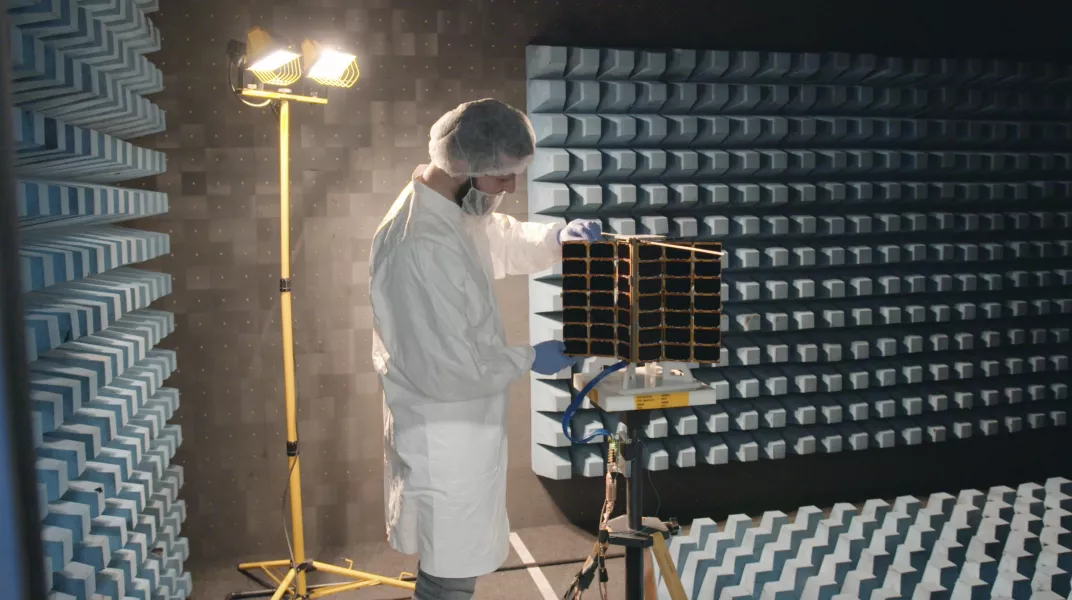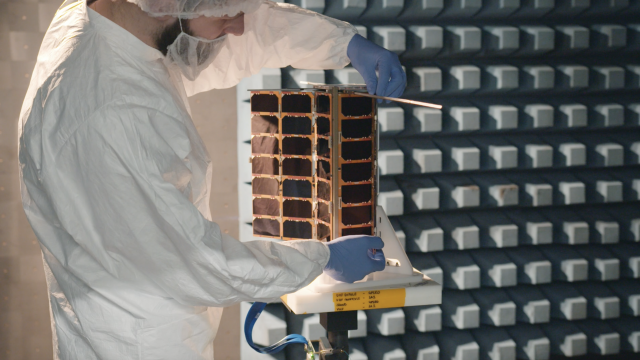The nanosatellites, which received more than £6 million in funding from the UK Space Agency, will join more than 100 other space objects providing support to maritime trade.
Made by Spire Global UK in Glasgow, each device has an onboard supercomputer with machine-learning algorithms that can provide “hyper-accurate predictions” of the locations of boats, according to the UK Space Agency.
The nanosatellites will calculate the arrival times of boats at ports to help port businesses and authorities manage busy docks safely, the agency said.

The machines will be transported into space on a Soyuz launcher from the Plesetsk Cosmodrome in Russia at 12.20pm UK time.
Science minister Amanda Solloway said: ”Satellites are shrinking in size and growing in ambition.
“A satellite the size of a shoebox may sound like a gimmick, but these nanosatellites are driving a revolution in how we observe planet Earth – with each holding the power and intelligence of a regular satellite.
“The Government is ensuring the UK remains at the forefront of this revolution and the Spire nanosatellites we have backed will help us do just that.”
Engineers at Spire Global designed, built and tested the spacecraft at the company’s Glasgow headquarters.
The nanosatellites were developed under the European Space Agency (ESA) Pioneer programme – a partnership co-funded by the UK Space Agency.
Meanwhile, the Government is also supporting the development of spaceports across the country, which will allow satellites to be launched from the UK soil for the first time in the coming years.







